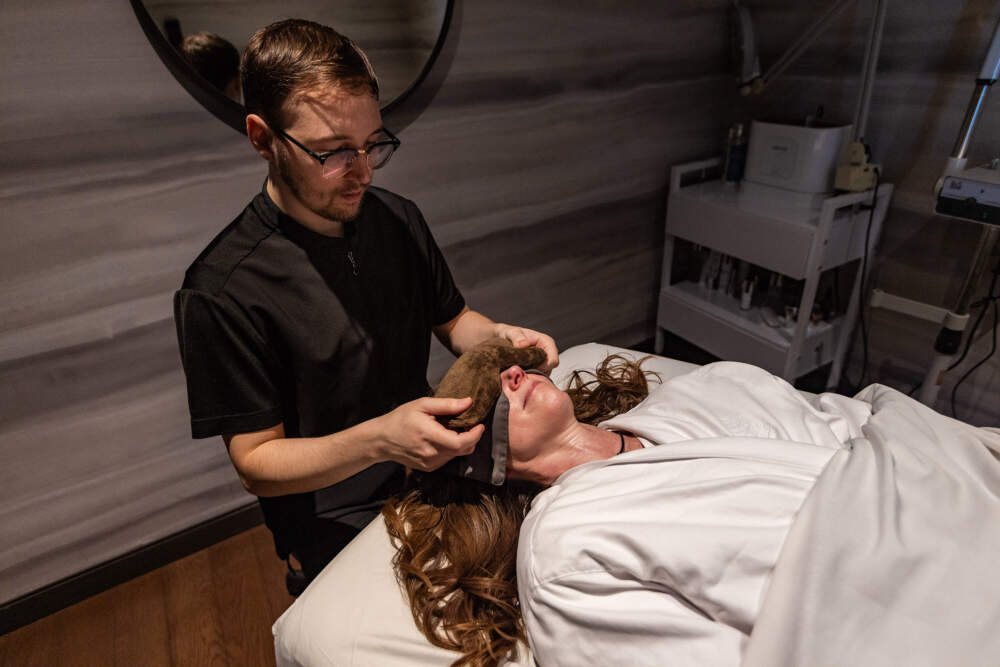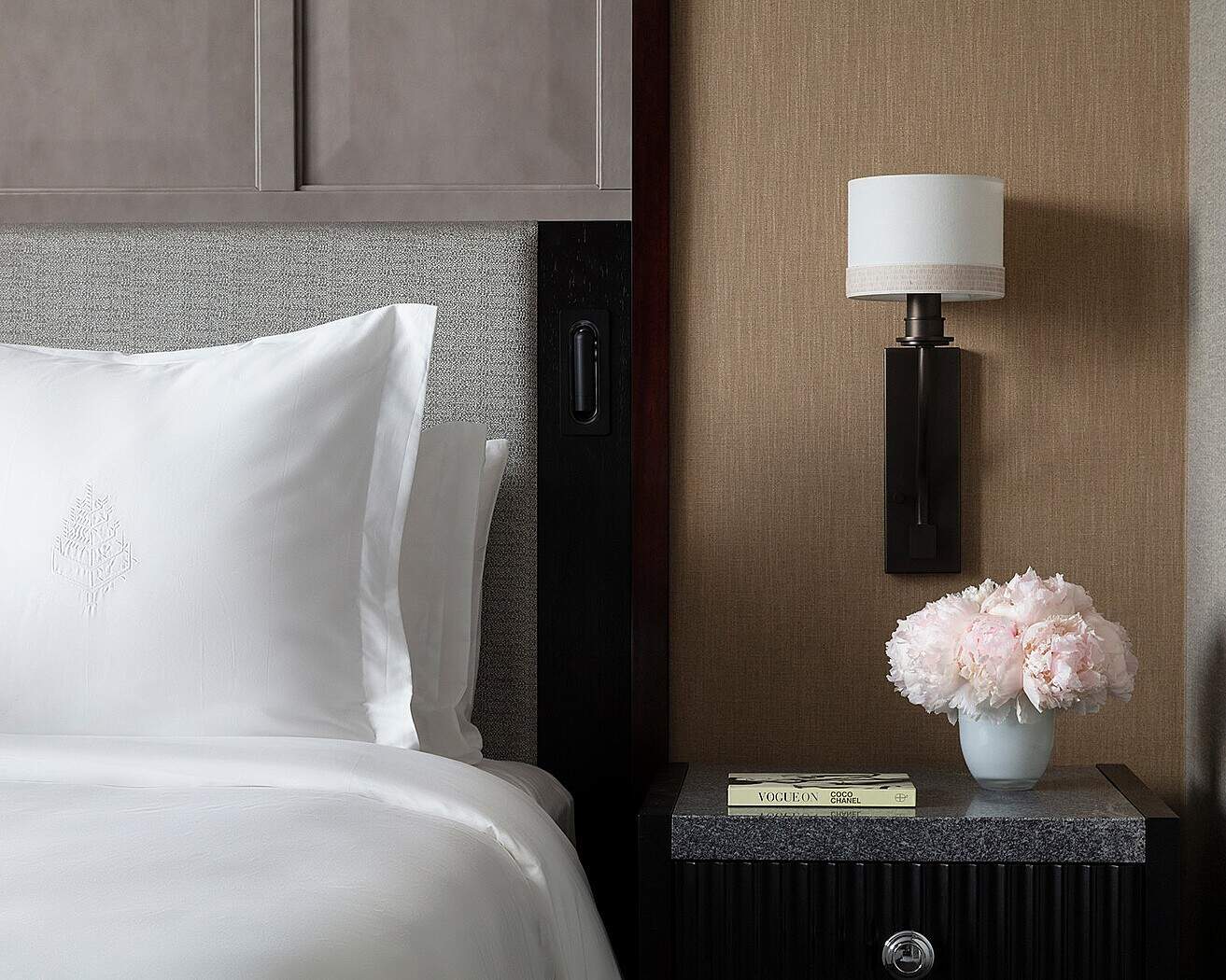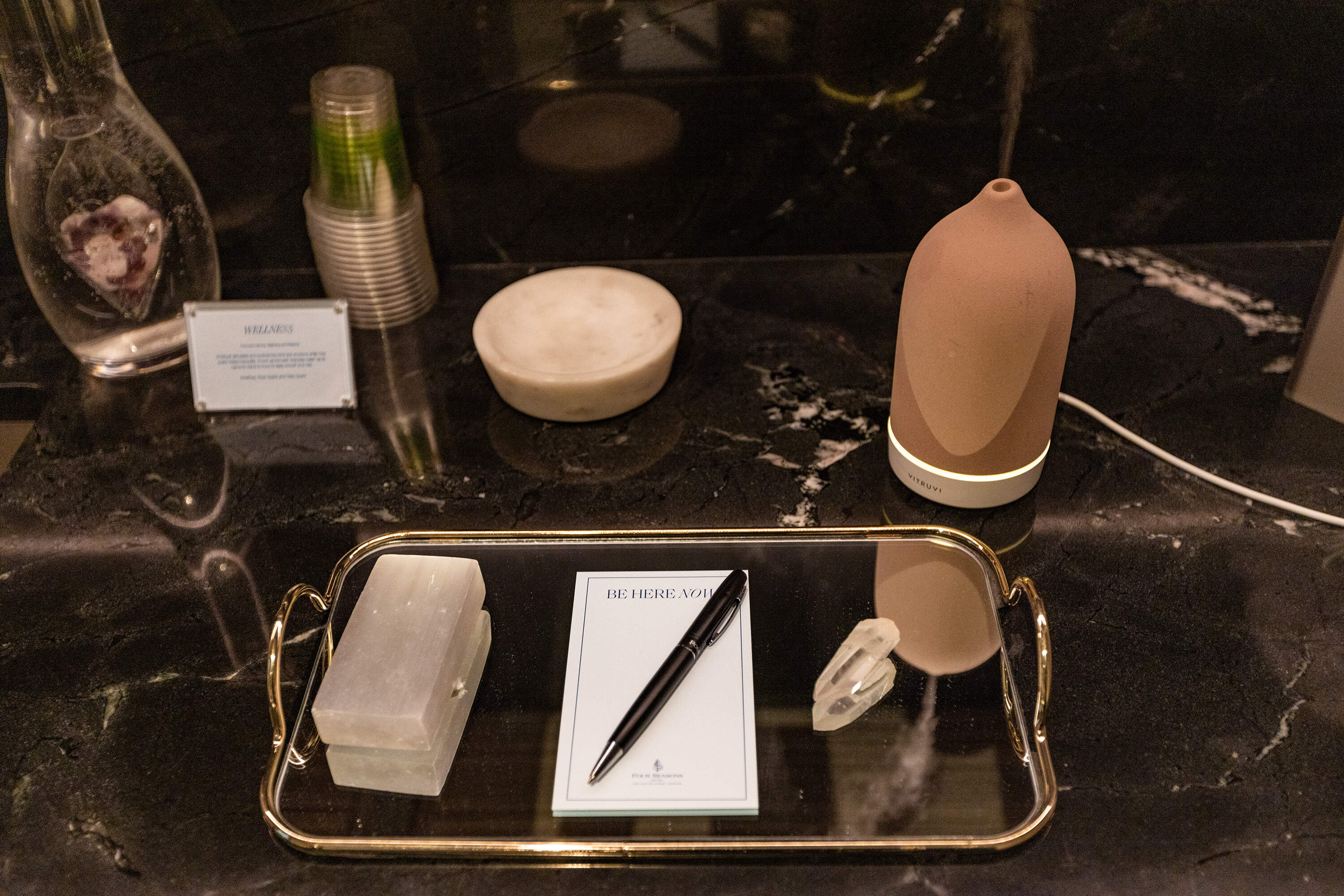Advertisement
Dreaming of sleep? You could try a 'sleep vacation'
Resume
When you travel, do you rest...or do you run yourself ragged? Maybe you even return home needing a vacation from your vacation. A trend has been steadily rising to help the exhausted among us catch some serious zzzzs. It’s National Sleep Awareness Month, so let’s pull back the covers on “sleep tourism."
A sleep-deprived nation
A travel trend that highlights hitting the hay is like a dream come true for Brigham and Women’s Hospital sleep scientist and Harvard Medical School assistant professor Dr. Rebecca Robbins. “You can certainly see how sleep vacations and retreats are becoming in vogue and popular in a nation that is struggling with sleep difficulties,” she said. “About one in three Americans at any given time are struggling with falling asleep or maintaining their sleep.”
The Centers for Disease Control recommends we get seven or more hours of sleep a night. According to Google Trends, in 2023 online searches for the word “sleep” hit a record high. Robbins said increased awareness about our national sleep deficit has created new opportunities for resorts and hotels. “Maybe they've partnered with a sleep scientist to design the guest room, maybe they’ve developed a pillow menu, maybe they are talking about a partnership with a new bedding company or something of that nature,” she explained.

“We do have pillow options, we have several,” Haley Lamoriello, spa and wellness manager at the Four Seasons, One Dalton in Boston confirmed. “We have feather pillows. We have non-feathered pillows. We have horsehair pillows.” The hotel also has their own lines of linens and plush mattresses.
The “Sleep Ritual”
Many hotels have upgraded their bedding, and even adopted sleep wellness programs that provide guests with herbal teas, ear plugs, cushioned sleep masks and guidance, including The Langham in Boston. Some luxury resorts offer more extreme options like “sleep cocoons,” sessions with a hypnotherapist and meditation pods. Other Four Seasons' properties have silk hammocks for "sacred naps." The Back Bay hotel's signature sleep enhancer can be found in the spa. It’s called the “Sleep Ritual.”
“People want to feel rejuvenated, and I think that's a big part of why this has become such a popular item on our spa menu,” Lamoriello said.

The multi-sensory treatment was developed with Ground Wellbeing, an Irish wellness product line. Rather than explain how it unfolds, the Four Seasons team encouraged this reporter to experience it first-hand. So, in the name of good journalism, I entered a dimly lit room with Tyler Cousins.
With an air of serenity, the soft-spoken massage therapist walked me through the service. It began with a Himalayan salt foot bath to soothe the thousands of nerve endings in our feet. “We really want to calm the nervous system to stop the firing of the nerves,” Cousins said, “so we can really get that good sleep going."
When asked about “sleep tourism” Cousins said he wasn’t aware of the trend until a few years ago. “But, now I hear people talking about it every other week.”
The treatment had barely begun and I was already feeling woozy, then joked, “You’re going to have to roll me out of here in a cocoon.”
Next, Cousins intoned a mindful meditation. “I invite you to gently close your eyes, allow your hands to rest comfortably, and slowly bring awareness to your breathing.” Notes of lavender and rosemary wafted through the air. A long, full-body and face massage followed, with slow, flowing strokes. When it was over, I was so ridiculously relaxed I could hardly move.
Cousins said people are usually pretty groggy at the end, "and they seem as if they’re being woken up from 8 hours of sleep, and have sometimes even forgotten where they are.” He reminds them they’re in the spa, gives them some tea or water, and sends them on their way.
Some guests return to their room and (I would imagine) tumble into bed. Those who need to get on with their day are encouraged to take it easy, if possible. They’re also sent home with a “sleep kit” that includes the ritual’s pillow spray and face balm.
To sleep, perchance to dream
A modern motor lodge in North Adams pipes in its own novel sleep aid. Each room at Tourists has a little radio that streams music from its on-site radio station. The 24-hour playlist adapts to different parts of the day, and Tourists cofounder Eric Kerns curated an overnight selection of music made to induce deep slumber.
“It was being conscious of the fact that so many people struggle to sleep,” he explained. “There’s actual science that says you can try this, and it can help your brain get into the state that is good sleep.”
Kerns said the ambient compilation was inspired by a sleep scientist’s talk at Williams College. It focused on the effects specific beats (monaural) and tones (isochronic) can have on sleep.
Listen to a track from composer Max Richter’s 8-hour-long album “Sleep,” or the piece “Lost in Time” by the band Dreaming Hiker, and Kerns said, ”You'll notice your breathing starts to change, you’ll start to feel a little bit more relaxed.”
“Ultimately this list is about me experimenting on myself — and other close people in my life — to see how it helps them sleep,” Kerns explained. “Individual results may vary. But I respect the science behind it, and I love the fact that artists are utilizing these tools.”
Nice thing is, you don’t have to stay at Tourists to try it for yourself, because anyone can access Kerns' “Sleepytime” playlist on Spotify. “Part of traveling, and part of going on vacation, is what you're able to learn there and take home with you,” he said.
Sleep scientist Rebecca Robbins also pushes back on the notion that restorative sleep is an out-of-reach luxury. If you’re really struggling and concerned, she recommends talking to your clinician first. Then, for a DIY ritual, she said you could tell yourself, “I’m going to consciously choose to stay in, I’m going to have a light dinner, I’m going to avoid alcohol, I’m going to get off screens. And I think a lot of the relaxation strategies that are so helpful are all about closing your eyes, breathing and transporting yourself.”
Robbins added there are plenty of free podcasts that could also help us go nighty night.
This segment aired on March 18, 2024.
